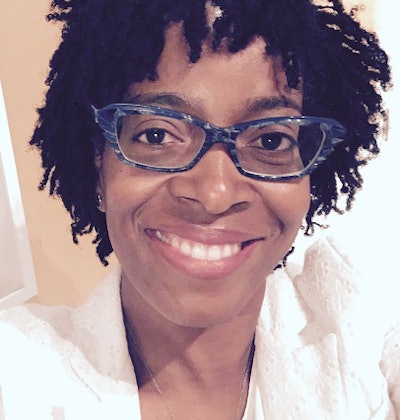The official release of Marvel’s highly anticipated Black Panther film over the weekend was a momentous cultural moment for Dr. Yona Harvey.
A poet and assistant professor of English at the University of Pittsburgh, the film’s premiere is significant to Harvey because she is one of the first African-American female writers to have written for Marvel, contributing to the Black Panther comic spinoffs “World of Wakanda” and “Black Panther and The Crew.”
 Dr. Yona Harvey
Dr. Yona Harvey“It feels exciting to have contributed to the comic that maybe led to the film being released,” she said. “A lot of people are just thrilled to see more complicated and nuanced images of Black people, queer people and people of color in visual media and visual culture.”
Marvel has made strides in reflecting diversity in its superhero collection over the last few years. The publishing group introduced African-American, Islamic-American and LGBT versions of characters such as Spiderman, Ironman, Ms. Marvel and Ice Man among other prominent characters in its Marvel Universe.
On her inspiration for joining the “World of Wakanda” and “Black Panther and The Crew” projects, Harvey said it was simply a desire to work with her longtime friend Ta-Nehisi Coates, a classmate from her time at Howard University.
“I was just really excited to work with him,” she said. “He’s super busy just like when we were younger, so I know the best way to spend time with Ta-Nehisi is the geeky way … to be working on something. When we were younger, it was trying to be these great poets, and so for this project, it was trying to make the best comic that we could make.”
Writing alongside Coates and Dr. Roxane Gay, an associate professor of English at Purdue University, Harvey wrote for the characters Zenzi, Storm and Luke Cage – her favorite character, she said.
Zenzi’s infrequent appearances in early Black Panther comics gave Harvey more flexibility in creating the character’s back story, she said, whereas Marvel fans are more familiar with the already established relationships and characteristics of Storm, notably portrayed by Halle Berry in recent X-Men film depictions.
Harvey has spent a majority of her writing career working to depict women and people from diverse backgrounds in dynamic and nuanced ways, although she says it is a little easier writing for male characters than female ones.
“Women’s voices are less on record in the media,” she said, adding, “I didn’t want to screw this up. I didn’t want the women characters to be super-perfect or just carry everything on their shoulders. But I want them to be interesting and I want them to reflect the voices and styles of whatever spectrum of young women might pick up the comic and read it.”
In the classroom, Harvey attempts to separate her academic work and comic writing, because blending the creative process too much with academic life “kind of kills it,” she said. “But on the other hand, I think it’s opened up more relaxed conversations with my students, especially the undergrads, so I like that part of it. They will open up about their interest in visual arts and comics.”
Harvey said this was important because academics often have “turned up their noses at comics for a long time. It’s only very recently that graphic novels have come into the academic space.”
Now, she said, she has received more “confessionals” from people admitting that they read comics after learning of her work and in the time leading up to Black Panther’s release.
Harvey attributes a part of the electrifying hype surrounding the Black Panther film to social media. Recently, she shared that she saw a social media post of an individual posing in front of a Black Panther promotional poster with a message that seemed to be, “‘Man, White people must feel like that all of the time,’’’ she said laughing. “And I think there is some real truth to that.”
She added: “People of non-Black culture, I just feel like they don’t understand what it’s like to move around and never see that many images of yourself in the larger culture. Just to be a part of this moment where people are excited … thrilled to see reflections of themselves on the screen and that are not stereotyped, I think that’s really cool, culturally and personally.”
Tiffany Pennamon can be reached at [email protected]. You can follow her on Twitter @tiffanypennamon.





















